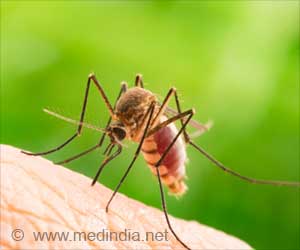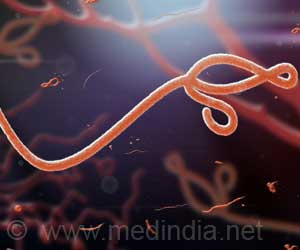Ebola might meet its downfall soon as scientists scramble to relegate it to a footnote of medical history.

From a standing start in August, the World Health Organization (WHO) gave the green light for the use of experimental treatments, and with vaccines being developed there are already a dozen leading candidates for anti-Ebola medication.
"People are very hopeful that we may be seeing some early results towards the end of the first quarter (of 2015) with some of these therapeutics," said Michael Kurilla of the US National Institute of Allergy and Infectious Diseases (NIAID).
"If these things do prove to be efficacious, we may be able to approve some of them and then have cures or specific licensed treatments for Ebola."
First diagnosed in the former Zaire in 1976, the virus killed 1,590 people in 24 outbreaks until 2012, with a death rate of up to 90 percent of the infected in the worst cases, the victims often suffering massive internal and external bleeding.
But it inflicted few deaths compared with diseases like AIDS or malaria and only broke out in poor, remote areas with drug research limited and driven mainly by the US government's bio-terror fears.
End of indifference
As governments closed borders and screened air passengers, indifference towards the epidemic evaporated and pharmaceutical companies began a race to develop treatments, vaccines and faster, mobile diagnostic tests.
Among the vaccines, cAd3-ZEBOV recently reported good results from early Phase I safety tests on a group of healthy volunteers in the United States.
"We are manufacturing approximately 20,000 additional doses of the vaccine candidate so that if the ongoing Phase I trials are successful, we can begin the next phases", hopefully "early in 2015", pharma company GlaxoSmithKline told AFP.
Among the treatments, frontrunner ZMapp has already been given to a number of stricken medical personnel, though its efficacy is not proven and doses have run out.
Broad-spectrum antiviral drugs are also being tested, and trials will start soon with therapies based on the blood or plasma of Ebola survivors.
Scientists believe the epidemic will be under control within a year in any case, but warn that the virus will continue to survive in an animal "reservoir", possibly fruit bats, from where it jumps every so often to humans in close contact.
And while hopes are riding on a pharmaceutical breakthrough some experts say improvements in medical infrastructure and infection control measures such as isolating patients, contact tracing and education provide the best answers.
"Outbreaks that have occurred in the past, they have been stopped without vaccine," said David Heymann, a virologist and head of the Centre on Global Health Security.
Source-AFP
 MEDINDIA
MEDINDIA




 Email
Email





